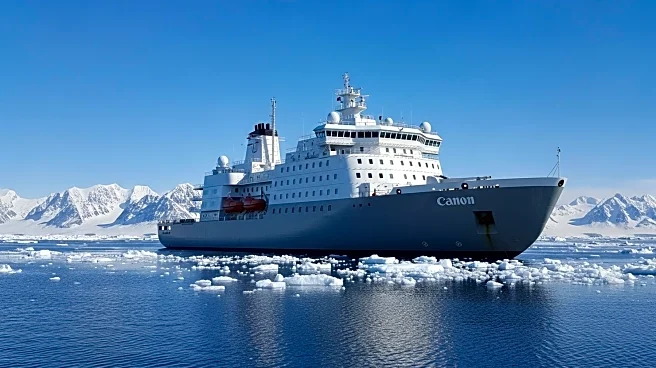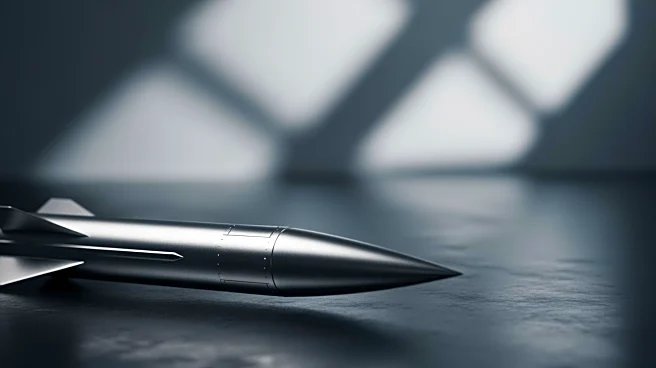What is the story about?
What's Happening?
President Trump has signed a memorandum of understanding (MOU) with Finland to construct Arctic Security Cutters (ASCs) in Finnish shipyards, with plans to build additional ASCs in U.S. shipyards. This agreement aims to address urgent national security needs in the Arctic region. The MOU directs the U.S. Coast Guard to develop a phased construction plan that promotes domestic expertise for future ASC production. The collaboration between the United States and Finland is set to accelerate the enhancement of the U.S. ASC fleet and revitalize both nations' shipbuilding industries. An international team led by Bollinger Shipyards, in partnership with Seaspan, Rauma Marine, and Aker Arctic, has been selected for the design and construction of six ASCs.
Why It's Important?
The agreement between the U.S. and Finland is significant for several reasons. It addresses the growing strategic importance of the Arctic region, where icebreakers play a crucial role in national security and environmental monitoring. By expanding the ASC fleet, the U.S. aims to strengthen its presence and capabilities in the Arctic, a region increasingly contested by global powers. The deal also highlights the importance of international collaboration in defense and security, as well as the revitalization of the shipbuilding industry, which can lead to economic growth and job creation in both countries. The partnership with Finland and other international entities underscores the global nature of security challenges and the need for cooperative solutions.
What's Next?
The next steps involve the U.S. Coast Guard submitting a detailed plan for the phased construction of ASCs, ensuring that expertise is developed domestically for future production. The collaboration is expected to proceed on an accelerated schedule, with the design and construction of the ASCs being a priority. Stakeholders, including shipbuilding companies and government agencies, will likely focus on meeting the strategic and operational requirements of the ASCs. The expansion of the icebreaker fleet may also prompt further international partnerships and investments in Arctic security and infrastructure.
Beyond the Headlines
The deal could have long-term implications for Arctic geopolitics, as increased U.S. presence in the region may influence diplomatic relations and environmental policies. The focus on domestic expertise development suggests a strategic shift towards self-reliance in critical defense capabilities. Additionally, the collaboration may set a precedent for future international defense agreements, emphasizing the role of shared technological and industrial advancements in addressing global security challenges.














